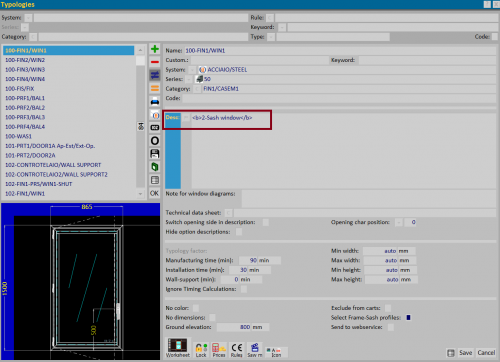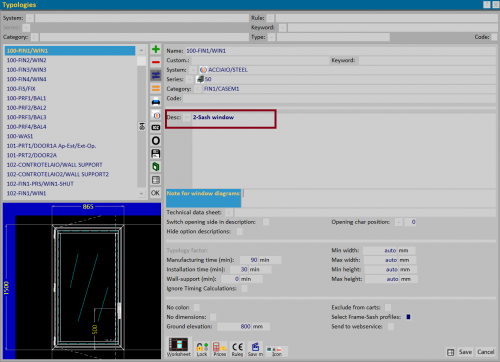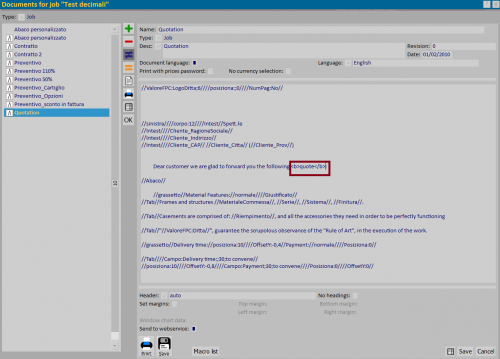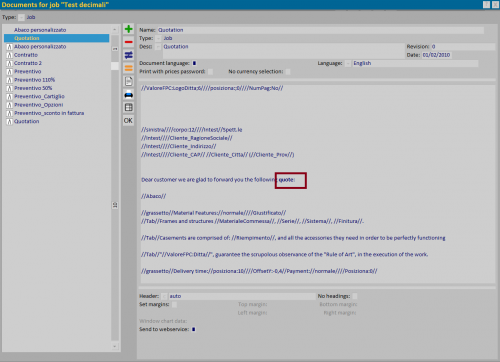How to manage text formatting
From Opera Wiki
Revision as of 09:15, 6 December 2021 by Monica.Sanna (Talk | contribs)
Contents |
Bold
- <b> Opera Company </b> or <strong> Opera Company</strong> : using these TAGs it is possible to format the text inserted in bold
The first image shows the insertion of the text with the chosen TAGs; the modified text is displayed when you move to another field or register the type (see second image). It is also possible to modify the text of the offer by inserting the TAGs. The formatted text is shown when we save the document.
The formatted text will be shown in the printed document
Italic
- <i> Opera Company </i> or <em> Opera Company </em> : using these TAGs it is possible to format the text inserted in italic
Highlight words and phrases
- <mark>Opera Company </mark> or <mark color="red">Opera Company </mark>: using these TAGs it is possible to highlight the text. It is possible to view a list of colors at the following link [1].
Superscript and subscript
- Opera <sub>Company </sub>: using these TAGs we can set a character, a number or a word to subscript. Ex.: OperaCompany.
- Opera <sup>Company </sup>: using these TAGs we can set a character, a number or a word to superscript. Es.: OperaCompany.







